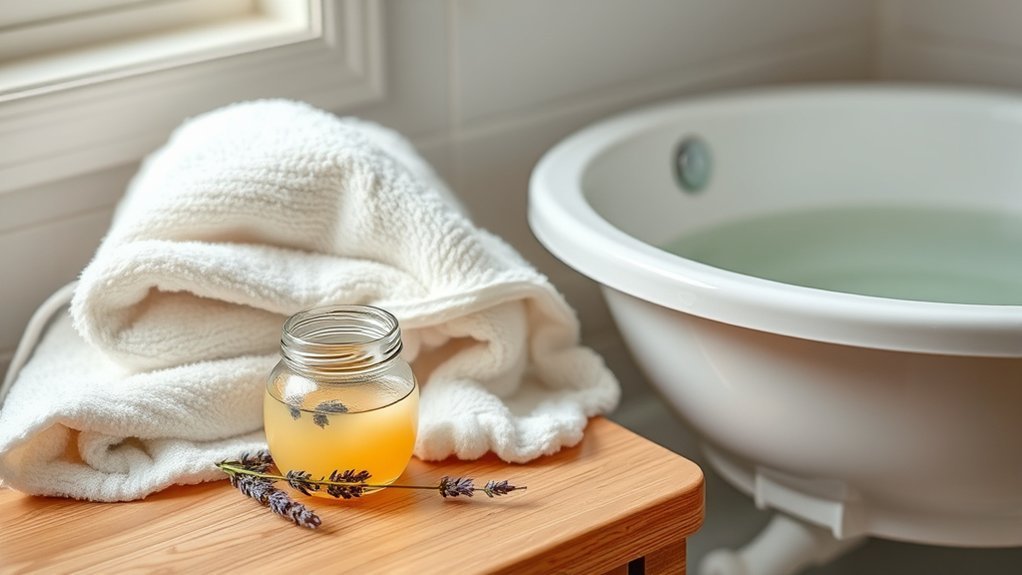Did you know that nearly 50% of women experience hemorrhoids during the postpartum period? This common condition can cause discomfort and distress, impacting your recovery after childbirth. It’s crucial to understand how to prevent these issues before they arise. By focusing on specific dietary and lifestyle changes, you can greatly reduce your risk. Let’s explore effective strategies to help you navigate this challenging time.
Understanding Postpartum Hemorrhoids
Understanding postpartum hemorrhoids is essential for new mothers, especially since they can cause discomfort during a time that should be focused on recovery and bonding with your baby.
Postpartum hemorrhoids are swollen veins in the rectum or anus, affecting about 40% of women after delivery. They often lead to pain, itching, and rectal bleeding during bowel movements.
Postpartum hemorrhoids affect around 40% of women, causing pain and discomfort during bowel movements.
The increased pressure from the growing uterus and hormonal changes, particularly elevated progesterone levels, can make you more susceptible to these issues. Straining during labor and delivery, along with constipation due to hormonal shifts or pain medication, contributes to their development.
While symptoms typically resolve within weeks, it’s important to seek medical advice if they persist or worsen to rule out more serious conditions.
Causes of Hemorrhoids After Childbirth
Several factors contribute to the formation of hemorrhoids after childbirth, making it a common issue for many new mothers.
The pressure exerted by your growing uterus during pregnancy can lead to swollen veins in the rectum and anus. Elevated progesterone levels relax blood vessel walls, increasing your susceptibility to hemorrhoids.
Straining during labor and delivery further exacerbates this, as the pushing phase increases pressure on your pelvic veins.
Postpartum constipation, often triggered by hormonal shifts, dietary changes, and pain medications, can lead to straining during bowel movements, which contributes to the problem.
Additionally, weight gain during pregnancy hinders blood flow to the pelvic area, raising the likelihood of developing hemorrhoids.
Understanding these causes is essential for managing your postpartum health.
Preventive Measures for Postpartum Hemorrhoids
To effectively prevent postpartum hemorrhoids, it’s vital to adopt proactive measures that support your digestive health and overall well-being.
Start by maintaining a high-fiber diet rich in fruits, vegetables, and whole grains to prevent constipation. Staying hydrated is important, so aim for six to eight glasses of water daily to soften stools and promote regular bowel movements.
Maintain a high-fiber diet and stay hydrated to support digestive health and prevent constipation.
Incorporate regular light exercise, like walking for at least 150 minutes a week, to improve circulation and reduce constipation risk. Always respond promptly to bathroom urges to avoid straining during bowel movements.
Finally, include daily Kegel exercises to strengthen your pelvic and rectal muscles, which can help support the veins in the anal area, reducing pressure and the risk of hemorrhoids.
Effective Home Treatments for Relief

After taking preventive measures to reduce the risk of postpartum hemorrhoids, you may still experience discomfort. Incorporating a high-fiber diet rich in fruits, vegetables, legumes, and whole grains can help soften your stools and prevent constipation, which is essential for relief.
Make sure you’re drinking at least eight cups of water daily, especially while breastfeeding, to stay hydrated and avoid hard stools. Warm sitz baths for about 15 minutes several times a day can soothe discomfort and reduce swelling effectively.
Applying ice packs wrapped in cloth to the affected area for 20 to 30 minutes can alleviate pain and inflammation. Additionally, using witch hazel on cotton balls or pads can provide cooling relief and help reduce swelling and itching.
When to Seek Medical Attention
Wondering when it’s time to seek medical attention for postpartum hemorrhoids? If you’re dealing with persistent pain that doesn’t improve with home treatments, it’s vital to consult your healthcare provider.
Additionally, significant rectal bleeding that exceeds a small amount could indicate a serious issue requiring immediate evaluation. If your hemorrhoids protrude or become thrombosed (clotted), you should seek proper evaluation and treatment options.
Don’t ignore symptoms like fever, severe abdominal pain, or signs of infection, as these may signal complications. Regular postpartum checkups are important for monitoring your recovery and addressing any concerns related to hemorrhoid symptoms or overall health.
Frequently Asked Questions
How to Prevent Postpartum Hemorrhoids?
To prevent postpartum hemorrhoids, you should eat a high-fiber diet, stay hydrated, exercise regularly, respond promptly to bowel urges, and perform Kegel exercises. These steps will help maintain healthy bowel function and reduce pressure.
How Common Is It to Get Hemorrhoids After Giving Birth?
It’s quite common to encounter hemorrhoids after giving birth; nearly 40% of women face this frustrating condition. Factors like hormonal shifts and pressure during labor play significant roles in this postpartum predicament.
How to Prevent Hemorrhoids Giving Birth?
To prevent hemorrhoids during childbirth, focus on a high-fiber diet, stay hydrated, engage in light exercise, avoid prolonged sitting, and respond quickly to bowel urges. These steps can substantially reduce your risk.
What Shrinks Hemorrhoids Fastest?
To shrink hemorrhoids quickly, apply ice packs for swelling relief, take warm sitz baths to promote blood flow, and use witch hazel for inflammation. Staying hydrated and eating fiber-rich foods also aids in healing.
Conclusion
In conclusion, taking proactive steps can help you avoid postpartum hemorrhoids and ease your recovery. Remember, “an ounce of prevention is worth a pound of cure.” By maintaining a high-fiber diet, staying hydrated, and engaging in light exercise, you can greatly reduce your risk. If you do experience discomfort, don’t hesitate to seek medical advice. Your well-being is important, and addressing these issues promptly will help you enjoy those precious moments with your new baby.
